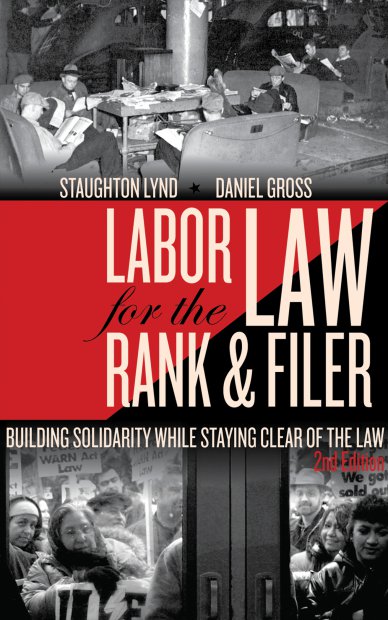Neck Stiffness After a Car Accident
If you’ve ever been in a car accident, you know that it can be a jarring experience. The sudden impact can cause your body to be thrown in different directions, and this can lead to a variety of injuries, including neck stiffness.
What is Neck Stiffness?
Neck stiffness is a common symptom that can occur after a car accident. It occurs when the muscles in the neck become tight and painful, making it difficult to move. This can be caused by a number of factors, including muscle strain, ligament sprains, and nerve damage.
Symptoms of Neck Stiffness
The symptoms of neck stiffness can vary depending on the severity of the injury. Some common symptoms include:
- Pain in the neck
- Stiffness in the neck
- Difficulty moving the neck
- Headache
- Dizziness
- Nausea
Causes of Neck Stiffness
The most common cause of neck stiffness after a car accident is muscle strain. This occurs when the muscles in the neck are stretched or torn. Ligament sprains can also cause neck stiffness. Ligaments are tough bands of tissue that connect bones together. If a ligament is stretched or torn, it can cause pain and stiffness.
Diagnosis of Neck Stiffness
Your doctor will diagnose neck stiffness by performing a physical examination. They will ask you about your symptoms and how they started. They will also check your range of motion in your neck. In some cases, your doctor may order an X-ray or MRI to rule out other injuries.
Treatment for Neck Stiffness
The treatment for neck stiffness will depend on the severity of the injury. In most cases, treatment will involve rest, ice, and pain medication. Your doctor may also recommend physical therapy to help you regain range of motion in your neck.
How to Prevent Neck Stiffness After a Car Accident
There are a few things you can do to help prevent neck stiffness after a car accident:
- Use a headrest when driving. This will help to support your neck in the event of a crash.
- Sit up straight when driving. This will help to keep your neck in a neutral position.
- Avoid sudden movements of your neck. If you need to turn your head, do so slowly and gently.
- Get regular exercise. Exercise can help to strengthen the muscles in your neck and make them less susceptible to injury.
Conclusion
Neck stiffness is a common symptom that can occur after a car accident. It is important to seek medical attention if you experience neck stiffness after a car accident, as it could be a sign of a more serious injury.
Neck Stiffness After a Car Accident
Neck stiffness is a prevalent after-effect of whiplash, an injury sustained when the head is abruptly jolted back and forth. If you’ve been involved in a car accident, you may be experiencing this discomfort along with other symptoms. Understanding the causes and seeking prompt treatment is crucial for recovery.
What Causes Neck Stiffness?
During a car accident, the sudden impact can cause the neck muscles to overstretch or tear. This overextension can lead to inflammation and pain, resulting in stiffness. Additionally, whiplash can damage the ligaments and tendons that support the neck, further exacerbating stiffness and pain.
Symptoms Associated with Neck Stiffness
- Sharp, stabbing pain in the neck
- Reduced range of motion
- Dizziness
- Fatigue
li>Headaches
These symptoms can range in severity from mild to debilitating. If you’re experiencing any of these symptoms, it’s essential to seek medical attention promptly.
Treatment Options
Treatment for neck stiffness after a car accident typically involves a combination of therapies.
- Rest
- Over-the-counter pain relievers
- Ice packs
- Physical therapy
- Massage therapy
- In severe cases, surgery may be necessary.
Recovery Time
The recovery time for neck stiffness after a car accident varies depending on the severity of the injury. Minor stiffness may resolve within a few days, while more severe injuries may require several weeks or months of treatment. It’s important to follow your doctor’s instructions and attend all recommended appointments to ensure a full recovery.
Neck Stiffness After a Car Accident: Understanding the Causes and Relieving the Pain
Waking up with a stiff neck after a car accident can be a common experience. The sudden impact and jarring motions can put immense stress on the muscles, ligaments, and tendons in your neck, leading to discomfort and pain. If you’re experiencing neck stiffness after a car accident, it’s crucial to understand the underlying causes and explore effective remedies to alleviate the pain.
Causes of Neck Stiffness After a Car Accident
The sudden force of a car accident can cause a variety of injuries to the neck, including:
1. Muscle Strains: The muscles in the neck are responsible for supporting the head and allowing us to move it. A sudden impact can stretch or tear these muscles, leading to pain and stiffness. Muscles strains in the neck can be caused by hyperextension (the head being thrown backward) or hyperflexion (the head being forced forward) during a car crash, respectively causing muscle damage to the anterior neck muscles or posterior neck muscles.
2. Ligament Sprains: Ligaments connect bones to other bones and provide stability to the joints. A car accident can cause ligaments in the neck to stretch or tear, resulting in pain and stiffness. Neck sprains often result from the head being abruptly jerked or twisted during a car accident.
3. Facet Joint Injuries: The facet joints are located on the back of the vertebrae and allow for movement of the neck. A car accident can cause these joints to become dislocated or injured, leading to pain, stiffness, and headaches. Facet joint injuries can be especially uncomfortable, as these joints are responsible for guiding the movements of the neck
4. Whiplash: Whiplash is a common neck injury that occurs when the head is suddenly thrown backward and then forward in a rapid motion. This can happen in a car accident when the vehicle is struck from behind. Whiplash can strain the muscles and ligaments in the neck, causing pain and stiffness.
Treatment for Neck Stiffness After a Car Accident
Treatment for neck stiffness after a car accident will depend on the severity of the injury. Some common treatment options include:
1. Rest: Resting the neck can help reduce pain and inflammation. Avoid activities that aggravate your symptoms, such as heavy lifting or prolonged sitting.
2. Ice: Applying ice to the neck can help reduce swelling and pain. Ice packs should be applied for 15-20 minutes at a time, several times a day.
3. Heat: Heat can help relax tense muscles and relieve pain. Heat packs or warm baths can be used to soothe sore muscles.
4. Over-the-counter pain relievers: Over-the-counter pain relievers, such as ibuprofen or acetaminophen, can help reduce pain and inflammation.
5. Physical therapy: Physical therapy can help strengthen the muscles in the neck and improve range of motion. Exercises such as neck stretches and strengthening exercises can be beneficial.
If your neck stiffness is severe or does not improve with home treatment, it’s important to see a doctor. You may need further evaluation, such as X-rays or an MRI, to determine the extent of your injury and develop an appropriate treatment plan.
Neck Stiffness After a Car Accident: Understanding the Causes and Symptoms
After a car accident, it’s not uncommon to experience neck stiffness. This discomfort can be a result of the sudden and forceful movements of your head and neck during the impact. While neck stiffness usually resolves within a few days or weeks, it’s essential to understand the symptoms and potential causes to ensure proper care and recovery.
Symptoms of Neck Stiffness After a Car Accident
Symptoms of neck stiffness after a car accident can vary depending on the severity of the impact. Common symptoms include:
- Pain in the neck, especially when moving it
- Tenderness to the touch along the neck
- Difficulty turning or moving the head
- Headache
In some cases, neck stiffness can be accompanied by other symptoms, such as dizziness, nausea, or numbness in the arms or hands. These symptoms may indicate a more serious injury, and it’s crucial to seek medical attention immediately.
Causes of Neck Stiffness After a Car Accident
Neck stiffness is caused by damage to the muscles, ligaments, or bones of the neck. During a car accident, the sudden and forceful movements of the head and neck can strain or tear these structures, leading to inflammation and pain.
The severity of neck stiffness depends on the extent of the damage. Minor strains may resolve quickly, while more severe injuries may require medical attention or rehabilitation.
When to Seek Medical Attention
Most cases of neck stiffness after a car accident resolve within a few days or weeks with rest and over-the-counter pain relievers. However, it’s essential to seek medical attention if you experience any of the following:
- Severe pain or stiffness that persists for more than a few days
- Difficulty swallowing or breathing
- Numbness or tingling in the arms or hands
- Dizziness or balance problems
- Headaches that are severe or do not improve with over-the-counter pain medication
これらの症状があると、より深刻なけがの可能性があります。医療専門家は、適切な診断と治療を提供し、長期的な合併症を防ぐために不可欠です。
Treatment for Neck Stiffness After a Car Accident
Treatment for neck stiffness after a car accident typically involves rest, ice, and pain relievers. In some cases, physical therapy may be necessary to help restore range of motion and strengthen the muscles of the neck.
It’s important to follow the doctor’s instructions carefully and avoid activities that may aggravate the neck pain. Most people make a full recovery from neck stiffness after a car accident, but it’s important to seek medical attention promptly if symptoms persist or worsen.
Neck Stiffness After Car Accident
Neck stiffness after a car accident is a common problem, given that the sudden, forceful movements associated with a collision can strain the muscles and ligaments in the neck. While neck stiffness is typically not life-threatening, it can cause significant pain and discomfort, interfering with everyday activities and overall quality of life. If you’ve been involved in a car accident, understanding the potential complications associated with neck stiffness is vital.
Complications of Neck Stiffness After a Car Accident
Delayed Medical Attention: Ignoring neck stiffness or self-treating can delay proper medical evaluation and treatment, worsening the underlying condition. Seeking prompt medical attention allows for a thorough examination, diagnosis, and appropriate interventions to prevent complications.
Chronic Pain
Untreated neck stiffness can lead to chronic pain, a relentless and persistent ache that can significantly hinder daily life. This pain may interfere with sleep, restrict movement, and reduce overall well-being. Managing chronic neck pain often requires a combination of treatments, including medication, physical therapy, and lifestyle modifications.
Headaches
Neck stiffness often triggers headaches, ranging from mild tension headaches to debilitating migraines. The strain on the neck muscles can compress nerves and blood vessels, resulting in referred pain to the head. Treating neck stiffness can effectively alleviate these headaches and restore comfort.
Limited Range of Motion
As neck stiffness persists, it can restrict the range of motion in the neck. This reduced mobility makes it difficult to turn the head, look up or down, or perform everyday tasks. Physical therapy and exercises are crucial in restoring range of motion and preventing further complications.
Nerve Damage
In more severe cases, prolonged neck stiffness can lead to nerve damage. The pressure on nerves in the neck can cause numbness, tingling, or weakness in the arms or hands. Nerve damage can significantly impact daily activities, requiring specialized treatment to address the underlying nerve injury.
Disc Herniation
If neck stiffness is left untreated, it can contribute to disc herniation, a condition where the soft, jelly-like center of an intervertebral disc pushes through its tough outer layer. Disc herniations can cause intense pain, radiating pain down the arms or legs, and even neurological symptoms such as weakness or numbness. Treatment may involve conservative measures like pain medication or physical therapy, or in severe cases, surgery.
Neck Stiffness After a Car Accident: What You Need to Know
If you’ve been in a car accident, you may be experiencing neck stiffness. This is a common symptom after a crash, and it can be caused by a number of factors, including the force of the impact, the position of your head and neck at the time of the accident, and any underlying injuries to your neck or spine. Neck stiffness can be painful and uncomfortable, and it can make it difficult to move your head and neck. In some cases, neck stiffness can also be a sign of a more serious injury, such as a concussion or a neck fracture. If you’re experiencing neck stiffness after a car accident, it’s important to see a doctor to rule out any underlying injuries and to get treatment for your symptoms.
Prevention of Neck Stiffness After a Car Accident
The best way to prevent neck stiffness after a car accident is to wear a seatbelt. A seatbelt will help to keep your head and neck in place and reduce the risk of injury in the event of a crash. You should also avoid driving while intoxicated or fatigued. If you’re tired, your reaction time will be slower and you’ll be more likely to get into an accident. Finally, try to avoid driving in bad weather, as this can increase your risk of getting into an accident.
Treatment for Neck Stiffness After a Car Accident
If you’re experiencing neck stiffness after a car accident, there are a number of things you can do to treat your symptoms. First, try applying ice to your neck for 20 minutes at a time, several times a day. This can help to reduce pain and inflammation. You can also take over-the-counter pain relievers, such as ibuprofen or acetaminophen. If your neck stiffness is severe, your doctor may prescribe muscle relaxants or physical therapy.
When to See a Doctor
If your neck stiffness is severe or doesn’t improve after a few days, it’s important to see a doctor. This is especially important if you’re also experiencing other symptoms, such as headache, dizziness, nausea, or vomiting. These symptoms could be a sign of a more serious injury, such as a concussion or a neck fracture. Even if your symptoms are mild, it’s still a good idea to see a doctor to rule out any underlying injuries and to get treatment for your symptoms.
Tips for Preventing and Treating Neck Stiffness After a Car Accident
* Wear a seatbelt every time you drive.
* Avoid driving while intoxicated or fatigued.
* Try to avoid driving in bad weather.
* If you’re experiencing neck stiffness after a car accident, apply ice to your neck for 20 minutes at a time, several times a day.
* You can also take over-the-counter pain relievers, such as ibuprofen or acetaminophen.
* If your neck stiffness is severe, your doctor may prescribe muscle relaxants or physical therapy.
* If your neck stiffness is severe or doesn’t improve after a few days, it’s important to see a doctor.




Leave a Reply